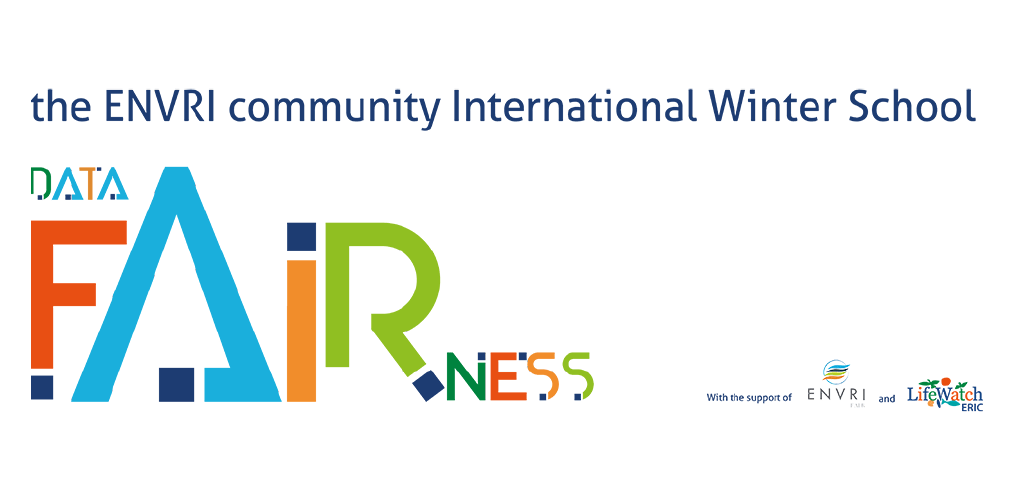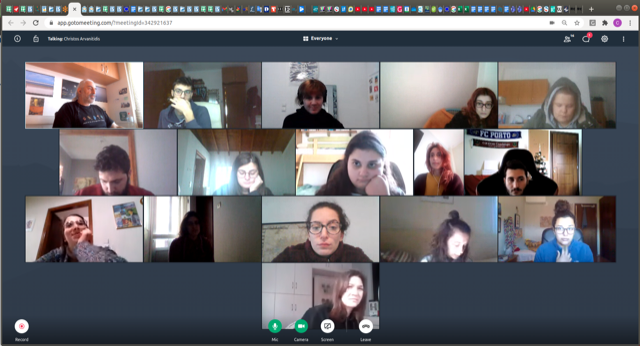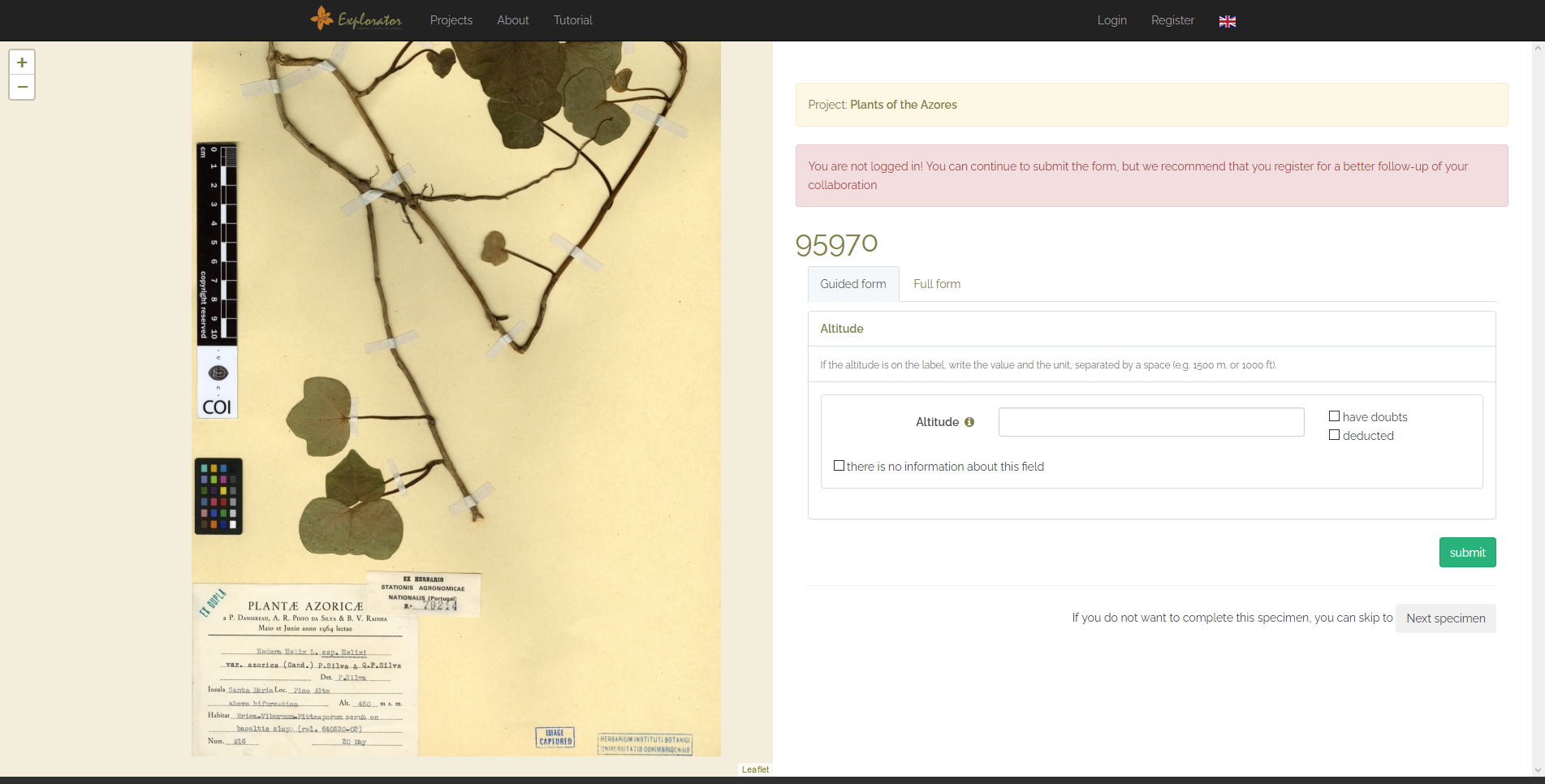The Flanders Marine Institute (VLIZ) is looking for a communicative and organizationally strong jack-of-all-trades with broad – including marine scientific – interests. These skills and enthusiasm are required to make maritime knowledge visible and to support, coordinate and develop citizen science initiatives in practice. We offer this communication employee a fixed-term contract (two years) for immediate employment. Fluency in Dutch is a mandatory requirement. Applications close 14 Februry 2021. Please apply here.
ERIC Forum leadership team reconfirmed
The ERIC Forum leadership team was reconfirmed today, 26 January 2021, at the ERIC Forum Annual Meeting. Dr John Womersley (ESS) was re-elected Chair and Dr Anton Ussi (EATRIS) Vice Chair, in a resounding endorsement of their achievements over the past complex year for research infrastructures, characterised by the outbreak of the COVID-19 pandemic and the development of the next European multiannual financial framework. The Chairs are responsible for the strategic planning of the ERIC Forum, and coordinate external relations with the European Commission, the European Strategy Forum on Research Infrastructures (ESFRI), and other stakeholders. Dr Womersley and Dr Ussi will continue to be supported in their work by the three other members of the Executive Board, each representing a specific scientific cluster:
- Dr Franciska de Jong, Executive Director, CLARIN ERIC, for the social sciences cluster
- Dr Wolfgang Fecke, Director General, EU-OPENSCREEN, for the life sciences cluster
- Dr Juan Miguel González-Aranda, Chief Technical Officer, LifeWatch ERIC, for the environment cluster.
The ERIC Forum brings together 21 leading European Research Infrastructures Consortia (ERICs), and is one of the leading science policy voices in Europe, representing the research infrastructure sector which is crucial in providing high level services to European researchers and making science and innovation possible. Dr Womersley praised the ERICs for coming together quickly to explain and emphasise the critical role of European research infrastructures as service providers to those researchers working to understand the Sars-COV-2 virus. “The Forum showed cohesion and an effective quick response. At the same time, and despite the impact of the pandemic, we came together again to maintain awareness of EU stakeholders concerning the role ERICs must have in Horizon Europe and the new European Research Area,” he said, asserting that 2021 would be a year of confirmation and continued development, in which to build on the achievements of 2020.
ENVRI week, dedicated to Environmental Research Infrastructures, will be virtual this year for the first time, from 1-5 February, 2021. It hosts ENVRI-FAIR project-related and other sessions targeting a variety of stakeholders. See here for the 2021 ENVRI week agenda and register here to access the meeting.
ENVRI Community International Winter School 2021
The 2021 ENVRI Community International Winter School from 11–22 January attracted 32 participants from all around the world, predominantly data centre staff, researchers and PhD candidates. Centred on the FAIR principles of data management, the online curriculum covered semantic navigation, Jupyter environments for visualisation and data discovery, resource access tools and cloud computing.
In recognition of the difficulties of distance learning, the organisers structured 40 hours of presence (including preparations) over a two-week period, with scheduled lectures and presentations in the mornings (09-11), followed by associated group and individual work time (11-12). The relevance of the content to the participants’ work ensured a high level of commitment and a great sense of camaraderie developed.
FAIR data are data which meet the principles of findability, accessibility, interoperability and reusability. The presentation of real-life use cases using state-of-the-art technologies demonstrated how essential it is to support end users in making the best use of the data, and to develop good user interfaces and services. The time the participants spent together created a new knowledge-exchange network for these data professionals. The team of teachers behind the “ENVRI-FAIR Resources: Access & Discoverability” Winter School was also international, with up-to-the-minute experience in the application of new technologies to enhance data centre functionality.- Dr Antonio José Sáenz-Albanés (ICT Infrastructure Operations Coordinator at LifeWatch ERIC) and Dr José Maria García-Rodriguez (Associate Professor of Applied Software Engineering at the University of Seville) dealt with how semantics enrich data resources and increase their FINDability by making them machine-actionable;
- Dr Ute Karstens and Dr Claudio Onofrio, respectively researcher and data scientist at Lund University, Sweden, gave a presentation on a fully integrated VRE application at ICOS Carbon Portal, called the atmospheric transport model STILT, running through a full life cycle for an ‘on demand’ model and visualising results as an interactive map;
- Dr Karolina Pantazatou and Ida Storm also work at ICOS Carbon Portal, Lund University, as scientific programmer and project assistant. Their workshop on using GIS-tools and Python-programming and user friendly Jupyter notebooks that process and analyse ICOS data products, had students tweeting in delight: “What a great workspace to document (text, images, links), write code & visualize data -all open and shareable!”;
- ICT Coordinator at the LifeWatch ERIC Service Centre, Nicola Fiore, and Web Portal Officer at the LifeWatch ERIC Service Centre, Lucia Vaira, kicked off the second week with a presentation on the LifeWatch ERIC Metadata Catalogue, explaining the entire process behind the creation and publication of new resources and how to access them; and
- Dr Zhiming Zhao, assistant professor at the University of Amsterdam, used examples from the ENVRIplus and ENVRI-FAIR projects to illustrate how to develop and operate data management services in cloud environments, from running a legacy and native cloud applications, to automating their deployment. Students were able to practice on the cloud infrastructures at EOSC and LifeWatch. One student tweeted a quote: “Users don’t care about the technology you use, but its quality and usefulness”.
The final presentations allowed participants to demonstrate just how much they had learned in professional terms, but there was no sad goodbye at the end. Students had been given the recipe for pasticciotti, the characteristic Lecce pastry, the week before, and everyone cheered as the winner of the ENVRI Chef Challenge was announced. The final tweet? “I highly recommend @ENVRIcomm open training resources!”
EU-AFRICA e-Biodiversity & Ecosystem Sustainable Management in support of GeoScience
LifeWatch ERIC Chief Technology Officer Juan Miguel González-Aranda participated as speaker and in the discussions at a workshop co-organised on 22 January 2021 by The Science Foundation Ireland Research Centre for Applied Geosciences (iCRAG) and the Council for Geoscience of South Africa to present a vision for a shared EU-Africa Geoscience Infrastructure.
The meeting was organised as part of the AERAP EU-Africa science collaboration platform, aimed at providing input for the forthcoming EU-Africa summit during the Portuguese Counsel Presidency. Although the summit date has yet to be finalised, the EU Strategy for Africa and the launch of Horizon Europe and the Neighbourhood, International Cooperation and Development Instrument (NDICI) can benefit from contributions from the EU and African geosciences communities.
In line with UN Sustainable Development Goal 17, “partnerships for the goals”, the African Union’s Agenda 2063 for socio-economic transformation and the European Commission’s Africa Strategy call for partnerships to achieve common goals. The foundation for a strong and enduring partnership needs to be rooted in our shared Earth, and informed by the knowledge of what science and technology can deliver. Justly achieving the green transition and the digital transformation while delivering the United Nations Sustainable Development Goals requires a full understanding of our planet home.In fact, Earth sciences provide solutions for many aspects underpinning the European Green Deal and the circular economy, including water security, agricultural sustainability, energy security, raw materials availability, especially as regards the critical minerals necessary for decarbonisation, the blue economy, and community safety from geohazards including climate change. The revolution in earth sciences brought about by the Big Data generated through AU-EU research partnerships will require additional distributed ICT e-Infrastructures in Africa and Europe, and the development of data analysis and management skills, especially for younger generations and particularly women.
An AU-EU partnership in earth sciences is being leveraged by expanding the existing cooperation between the Organization of African Geological Surveys (OAGS) and the European Geological Surveys (EGS), such as PanAfGeo which has been ongoing since 2016. At Friday’s meeting, Dr González-Aranda presented LifeWatch ERIC as a distributed ICT e-Infrastructure which is already providing support to address the primary challenges outlined in the European Commission’s comprehensive strategy with Africa, based on the essential relationship between Geodiversity and e-Biodiversity.
EcoLogicaMente
The EcoLogicaMente platform, developed by LifeWatch Italy in partnership with the Italian Society of Ecology (SItE) and University of Salento (UniSalento), is a web-based tool launched in 2021 to allow visitors to explore a broad range of issues in the field of ecology.
Primarily addressed to Italian school students and teachers, from Primary through to High School, the in-depth topics contain various types of material including texts, videos, presentations, live lessons, games, questionnaires, and practical activity sheets for work in the field or in the laboratory.
The EcoLogicaMente study topics and materials have been compiled by university professors and experts on ecological issues and are divided into five macro-areas: Ecosystem goods and services, Sustainability, Resource Management, Climate Change, and Biodiversity.
The courses are divided into different levels all of which require a login, and it is possible to receive a certificate of participation, after completing all the lessons and passing a final test. Support is available through an FAQ page and users can leave a rating of the material available and write reviews. Click here to navigate the platform.LifeWatch ERIC in MSc, University of Crete
LifeWatch ERIC contributed to a Master of Science programme at the Department of Biology at the University of Crete on Tuesday 19 January, 2021. The delivery was naturally online because of Coronavirus restrictions.
LifeWatch ERIC Chief Executive Officer Christos Arvanitidis presented a seminar entitled ‘Introduction to the international, European and national legal framework of the sea’, as part of the Masters of Management of Terrestrial and Marine Resources. Click here to download the PDF.
The Department of Biology at the University of Crete was established in 1981 and is today an internationally recognised centre for contemporary tertiary education and research.
LifeWatch Flanders ready for the next level
The Flemish LifeWatch Consortium kicked off a new project phase on 1 January 2021, secure that additional funding had been approved to provide continuing support to biodiversity data systems and observation infrastructure. Confirmation of success in its bid for the 2020 International Research Infrastructure funding, organised by the Research Foundation – Flanders (FWO) and financed by the Flemish Department of Economy, Science and Innovation (EWI) was announced on 16 December 2020. A virtual meeting on 5 January 2021 of the Flemish LifeWatch partners, the Flanders Marine Institute (VLIZ) and the Research Institute for Nature and Forest (INBO), was attended by 35 enthusiastic team members in a clear demonstration that the infrastructure is ready to move to the next level. The two-hour conference included presentations from Working Groups on:
- The LifeWatch Species Information Backbone
- Marine terrestrial and freshwater observatories
- ICT Infrastructure and system integration
- Virtual labs and Open Science, and
- Outreach, valorisation and user support
Built up in the period 2012-2020, these facilities generate open data through automated and innovative pipelines, serving users from science, industry, policy and civil society. The next phase of the project will optimise and enhance the research infrastructure, delivering significant outcomes for Flanders, Europe and beyond. The project will apply a novel approach based on the quadruple helix framework, closely engaging with citizens, industrial players, policy makers and scientists in the data collection, analysis and decision making of the project, to promote the use of the Flemish LifeWatch infrastructure.
Data Archaeology: 90 new datasets for EurOBIS
The Flanders Marine Institute (VLIZ), founded in 1999, promotes marine knowledge creation and excellence through sound interdisciplinary research about the ocean, seas, coasts and tidal estuaries. Since 2012, the LifeWatch team at VLIZ has processed and digitised over 100 historical biodiversity datasets that were created by, or collected in close collaboration with, Belgian marine scientists.
Over the last year, 90 of these datasets were further refined to become part of the European Ocean Biodiversity Information System (EurOBIS). EurOBIS is an important building block of the LifeWatch Species Information Backbone, a central contribution from LifeWatch Flanders to LifeWatch ERIC, the purpose of which is to centralise biodiversity data and fill the gaps in our knowledge.
Although these data refer to observations made in the twentieth century, investing time in making them available through online systems is highly valuable, as looking at the past will help us to better understand the future. Data archaeology fills in a historical data gap and provides the necessary baseline information for inter alia species distribution and climate change models.
The 90 newly-available datasets mainly cover the North Sea and provide the historical context for present observations, thereby facilitating the process of setting reference conditions for monitoring and management activities in this area. They comprise 305,529 occurrence records of 3,758 different taxa from small meiofauna as well as bigger macrobenthos communities, with the earliest occurrence record dating back to 1903.
The datasets conform to FAIR data principles, ensuring the findability, accessibility, interoperability and reusability of the (meta)data, and have been formatted to the internationally accepted DarwinCore format (DwC), and BODC vocabularies. They are available through the Belgian LifeWatch e-Lab, the EMODnet Biology project (through its Data Catalogue, Data Download Toolbox, web services and IPT), the Ocean Biodiversity Information System (OBIS) and the Global Biodiversity Information Facility (GBIF).
Crowdsourcing platform for Coimbra Herbarium
The Herbarium of the University of Coimbra, Portugal, celebrated its 140th anniversary in 2020, but it is only since 2002 that the collection has been moving online to make sure that these priceless resources will be available to future generations. As the digitisation is a painstakingly slow process, the University has developed a platform to enable citizen scientists to contribute to the transcription of information to the database. The COI Catalogue, as it is known internationally, contains approximately 800,000 specimens, many of which are of great historical interest. The new crowdsourcing platform – EXPLORATOR – allows registered citizens to update the descriptive labels within the database workflow, with which it is fully integrated. The data validated by the platform is progressively added to the master database and therefore made available through the online catalogue.
EXPLORATOR was developed by the Herbarium COI team within the framework of PORBIOTA, the Portuguese e-Infrastructure for information and research on biodiversity, which manages LifeWatch Portugal. It provides each user with an image and a form to be completed one field at a time. A help icon is available for each field to provide support at every stage of the process. When a value is submitted, the platform verifies whether different values have been submitted for that field and issues an alert for discrepancies.
This validation function allows less experienced citizen scientists working in EXPLORATOR to start with fields that are easily identified and helps them become familiar with the herbarium specimens and the type of information required. When a given number of responses are validated as correct, the user is given access to the next levels which unlock more complex fields. The architecture therefore encourages learning and greater proficiency, as well as avoiding inadvertent errors.
User proficiency levels determine the assignation of confidence values to the data entered. Validation occurs when the sum of points for a value reaches 60. Answers from an expert user are worth 50 points and those from a basic user are only worth 10, so the same value would have to be submitted by six basic users to equal the work of one expert. As an additional safeguard, manual validation by an administrator is also possible.
The EXPLORATOR platform currently accounts for 300 registered users and a total of 140,000 submissions, which relate to 36,000 validated fields. As only 12 percent of the catalogue materials have been processed so far, it is hoped that more citizen scientists will step forward and help speed up the work of the PORBIOTA e-infrastructure consortium in storing and managing biodiversity data that is essential for the national agenda for biodiversity research.
Vacancies at LifeWatch ERIC
Applications are invited from appropriately qualified and motivated individuals in response to three employment opportunities that are available at the LifeWatch ERIC Service Centre in Lecce, Italy:
Communication Officer
Training Officer
Ontology Developer
The deadline for all applications is Monday 25 January, 2021.









